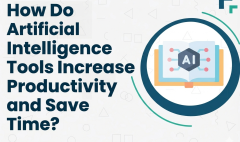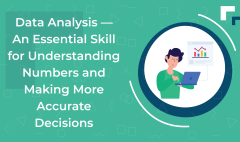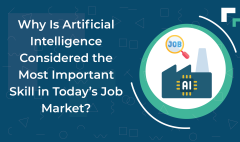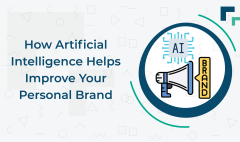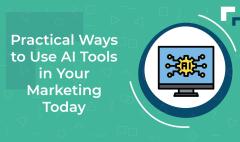Practical Applications of Artificial Intelligence in Daily Business Operations
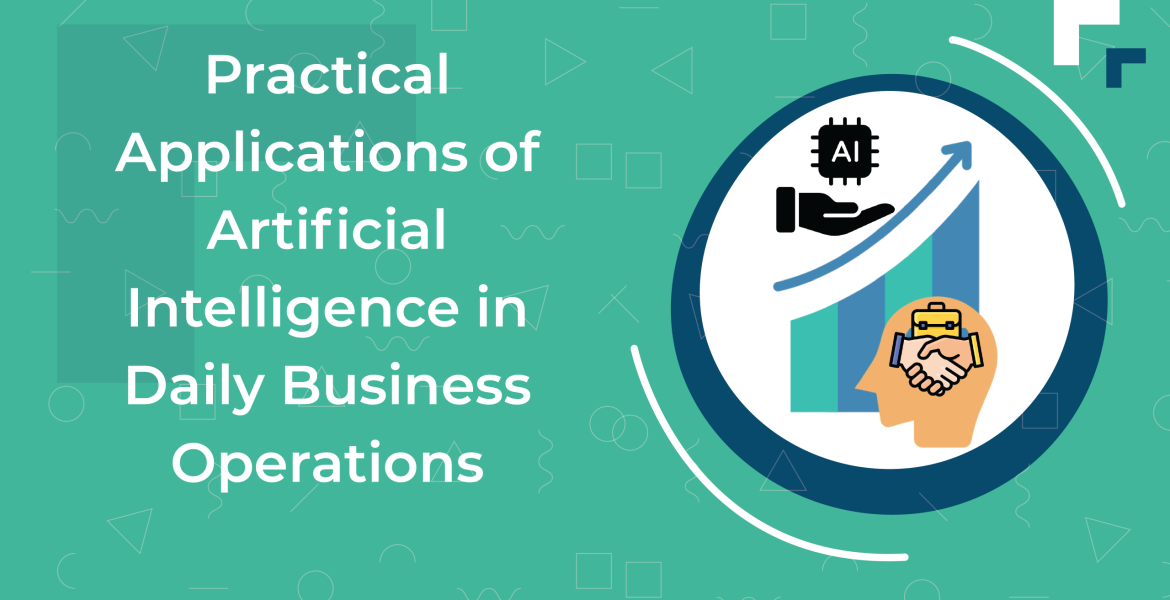

Practical Applications of Artificial Intelligence in Daily Business Operations
Introduction to Artificial Intelligence in the Workplace
Artificial intelligence is no longer a fictional idea or a technology reserved for scientific research. It has become an integral part of our daily work life. In the modern workplace, AI is a powerful tool that helps companies achieve faster and more accurate results while reducing costs and improving decision making quality.
Today, businesses of all sizes from startups to large enterprises can benefit from AI technologies in various areas such as customer service, marketing, human resources, and data analysis.
What Is Artificial Intelligence?
Artificial intelligence refers to the ability of systems or software to simulate human thinking and learn from past experiences, then make decisions or offer solutions based on that knowledge.
It relies on technologies like Machine Learning, Natural Language Processing (NLP), and Computer Vision. These tools enable machines to understand, analyze, and even create in some cases.
The Role of AI in Boosting Productivity
AI helps automate tedious tasks, analyze large datasets quickly, and generate accurate reports that aid in decision making. Companies that invest in AI often see operational efficiency increase by over 30%, with fewer human errors and improved customer experience.
Automating Routine Administrative Tasks
One of the biggest advantages of AI is eliminating time consuming routine tasks. Administrative tasks like data entry, invoicing, and meeting scheduling are now easier and more accurate with intelligent automation technologies.
Reducing Time Spent on Paperwork
Instead of spending hours reviewing files or organizing reports, tools like Zapier or UiPath can perform these processes automatically. For example:
- Automatically sending weekly reports
- Prioritizing email sorting
- Entering financial data directly from invoices into accounting systems
Examples of Common Automation Tools in Businesses
- Trello + Butler: Automates task and project management
- Calendly: Automates appointment scheduling
- DocuSign: Enables electronic signatures without printing
Using these tools, companies can save up to 10–20 work hours per employee per week, allowing staff to focus on more strategic tasks.
Improving Customer Service
Today’s customers expect fast, efficient service 24/7 and this is where AI shines.
Chatbots and 24/7 Customer Support
Chatbots like Intercom and Tidio offer instant support by answering frequently asked questions, tracking orders, and even giving personalized recommendations. These bots work around the clock, ensuring immediate responses even during holidays.
Analyzing Customer Satisfaction with AI
Thanks to Sentiment Analysis technologies, AI can read reviews and comments on social media and determine whether customer opinions are positive or negative. This helps companies improve their products and services quickly before issues escalate.
Smart Marketing and Data Analytics
In marketing, data is gold but without smart analysis, it’s meaningless.
Predicting Customer Behavior
By analyzing previous purchase data and customer interactions, AI can predict what a customer might want to buy next. Platforms like HubSpot and Salesforce Einstein use this to deliver the right offers at the right time.
Automatically Personalizing Marketing Campaigns
Instead of sending the same message to everyone, AI can create customized marketing campaigns for each audience segment. For example, if you run a clothing store, the system can send special offers to customers who prefer sportswear, and different ones to those who like formal wear.
Improving Human Resources Management
AI is also revolutionizing the HR field.
Smart Recruitment Through Resume Analysis
Systems like HireVue or Pymetrics can sort through hundreds of resumes in minutes, identifying top candidates based on skills, experience, and keywords, saving HR teams days of manual work.
Automated and Accurate Employee Performance Evaluation
By tracking KPIs and analyzing productivity, AI can pinpoint areas for improvement and suggest personalized training plans for each employee boosting efficiency and employee satisfaction.
Quality Control and Production Optimization
In manufacturing and production, quality is key. AI is a powerful tool to ensure product quality and reduce errors before they reach customers.
Using AI to Detect Defects
AI-powered Computer Vision systems can inspect products on production lines faster and more accurately than the human eye. For example, in electronics factories, smart cameras can detect defects in components or soldering within milliseconds – preventing faulty products from reaching the market.
Companies using this technology have seen rejected products decrease by up to 40%, reducing waste and saving costs.
Improving Production Lines and Reducing Waste
AI can analyze production data in real time to predict potential machine failures (predictive maintenance), reducing unexpected downtime, extending equipment life, and boosting operational efficiency.
Supporting Strategic Decision-Making
Making decisions in a business environment isn’t always simple, especially in volatile markets with massive data.
Analyzing Big Data to Guide Decisions
AI can process millions of data points in seconds, uncovering patterns and insights that are invisible to humans. For example, it can identify which product sells better in which season, or which customer segment responds better to specific offers.
Forecasting Market Trends
Using predictive models, companies can forecast future trends – such as rising demand for certain products or promising geographic markets. This gives businesses a competitive edge and helps them plan with precision.
Smart Inventory Management
Inventory can either be a strength or a costly burden.
Demand Forecasting and Avoiding Stockouts
AI can analyze past sales, seasonal factors, and even weather data to predict future demand helping companies avoid stockouts and maintain customer satisfaction.
Reducing Storage Costs Through Precise Management
Traditional inventory management may lead to overstocking unsold products. AI systems help companies maintain just the right amount of stock, reducing storage costs and improving capital turnover.
Enhancing Cybersecurity
With increasing reliance on tech, cybersecurity is critical for all businesses.
Early Threat Detection
AI-powered security systems can detect unusual patterns in networks that may indicate hacking attempts or cyberattacks even before any real damage occurs.
Fraud Prevention in Financial Transactions
Banks and e-payment companies use AI to monitor financial operations in real time and identify suspicious activities such as sudden large transactions or unusual repetitions and block them immediately.
Driving Innovation in Product Development
AI isn’t just about improving existing processes, it’s also a key driver of innovation.
Designing Products Based on Customer Needs
By analyzing customer data and feedback, companies can design new products that meet expectations precisely. For example, fashion companies use AI to analyze trends and quickly design new collections.
Fast and Efficient Prototype Testing
In engineering or tech industries, AI can simulate product prototypes virtually before actual production, saving time, money, and reducing the risk of launching unsuccessful products.
Conclusion
AI is no longer a luxury or future option, it’s a practical necessity for businesses that want to stay competitive and grow. From automating routine tasks to enhancing customer service, smart marketing, resource management, and decision-making, AI has proven to be a revolutionary tool that can transform how work is done.
Adopting these technologies doesn’t just mean saving time and money, it also means achieving greater accuracy, flexibility, and the ability to adapt to rapid market changes.
Companies that started early with AI are now ahead of their competitors, having built more efficient and responsive systems.
The future belongs to businesses that embrace these technologies and combine them smartly with their employees’ expertise, creating a balanced work environment between human creativity and analytical power.
The question now is not “Should we use AI?” but rather:
“How can we use it most effectively to achieve our goals?”
Frequently Asked Questions (FAQs)
- What is the best AI software for small businesses?
It depends on your needs, but tools like ChatGPT for customer service and HubSpot for marketing are great options for small businesses. - Can AI replace employees?
Not necessarily AI is designed to support employees and boost their productivity, not fully replace them. - What are the biggest challenges in adopting AI?
Key challenges include initial cost, employee training, and ensuring the quality of data used in AI models. - Is AI expensive for startups?
The upfront investment can be significant, but there are free or low-cost tools available that suit small businesses. - How can I start using AI in my company?
Start by identifying areas needing improvement, then choose suitable tools for those tasks and implement them gradually.

